Technical SEO vs SEO: What is The Difference Between Them?

Search Engine Optimization, or SEO, is the practice of tweaking elements of your site to work best with search engines. It's a startlingly complex practice, with hundreds of moving parts and decades of institutional knowledge. It should come as no surprise that there is a lot of confusion surrounding different aspects of SEO and their definitions.
I'd like to help clear up some of that confusion.
Overall SEO
Overall, general "SEO" is everything you do on your site that has an impact on how search engines view it. This includes everything from your site metadata to your page speed to mobile compatibility to your content. Pretty much everything that Google looks at is something we consider to be part of SEO.
I say Google up above because, well, Google is the one that matters the most. Google has over 85% of the search market share and has maintained that level for a decade. Other search engines have small fractions of the traffic and exposure they do, like Bing or DuckDuckGo.
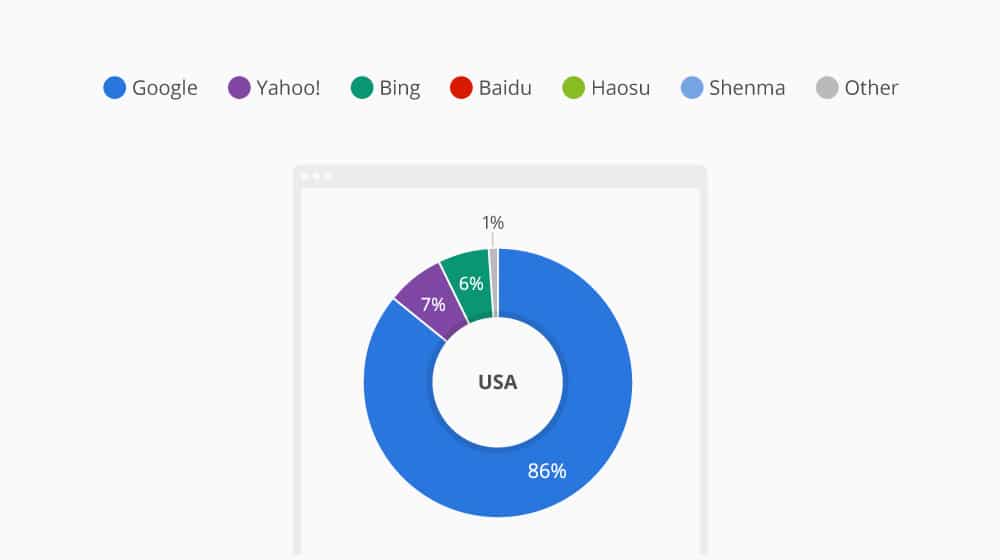
It's more than just the market share, though. Google is the world leader on search. They have, by far, the most sophisticated search and indexing algorithm out there. Their index is the largest, their analysis and sorting and is the most sophisticated, and they're constantly pushing the envelope on search technology.
When Google makes a change to its algorithm, it can change the world. That's not theoretical. One of the biggest shakeups in global internet design was in 2011 when Google released its Panda algorithm update. This update penalized duplicate and low-quality content, forcing low-quality sites out of the search results and promoting sites with high quality, unique content.
How do you even begin to analyze the quality of a piece of content, in the abstract, using some sort of software? You have to have almost incomprehensible amounts of processing power and extremely deep learning algorithms – not to mention a legion of contractors evaluating and improving the search results – and an extremely robust set of guidelines.
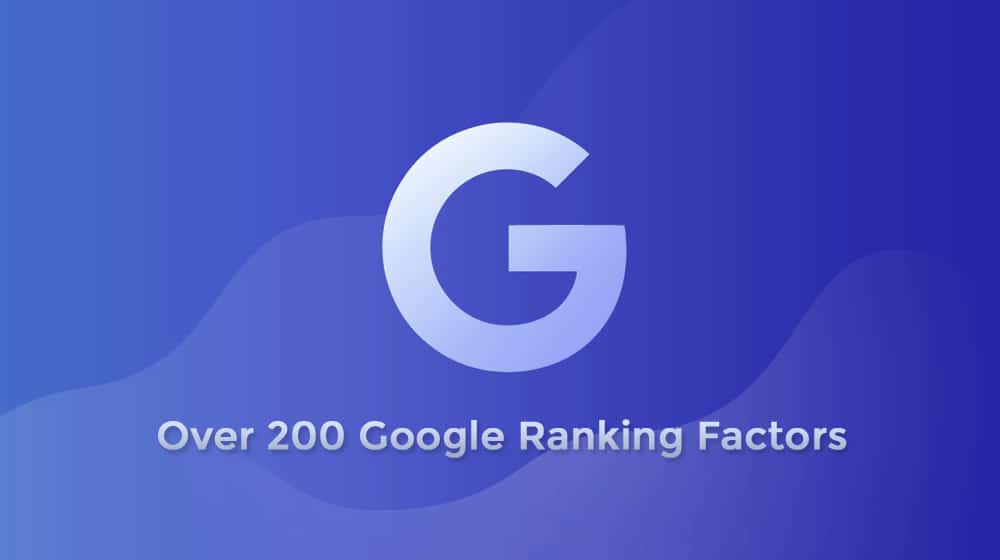
It's not a coincidence that Google's webmaster guidelines, part of their overall help center, is a sprawling and massive knowledge base. They analyze and categorize well over 200 different factors as part of ranking a site.
Those 200 factors? Every single one of them is part of SEO.
Technical SEO
Technical SEO, meanwhile, is a subset of overall SEO. Those 200 factors linked above, that's all of SEO, more or less. Technical SEO is only a fraction of those. It's still a lot, and while I'm going to list a bunch of examples, I'll probably miss some. That's just how complex SEO is.
Technical SEO includes essentially anything that is a) on-site, meaning it's part of your website, not another domain, and b) technical, not part of your content. Often, it is also defined as anything that facilitates optimizing your site for indexing. It's more about getting in the index and getting a rank than it is about improving that rank. Of course, most of these factors are more than just a yes/no checkbox, and improving them can improve your overall ranking.
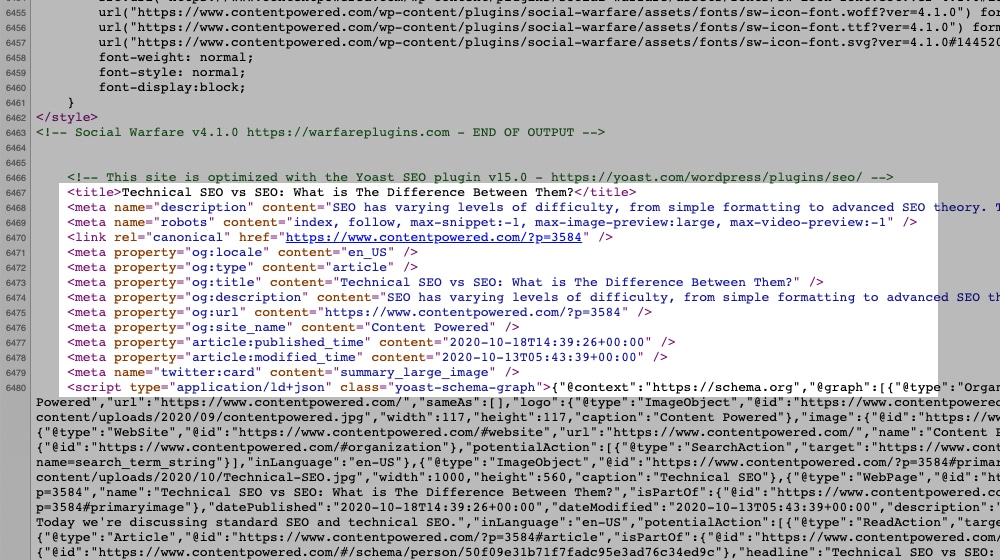
Here are a handful of the most common examples:
- Creating, updating, and submitting an XML sitemap to Google helps facilitate indexing your entire site properly.
- Metadata. Your meta title and meta description are important parts of both being indexed and being ranked. Though, descriptions may be on their way out.
- Link handling. How you link to other pages, internally and externally, and whether you use the
rel=nofollowattribute appropriately. - Rich data. Using schema.org markup for specific kinds of data helps that data be parsed and indexed properly by the search engines.
- Site speed. The speed at which a page loads is growing increasingly important, especially over the last few years, and is now a major ranking factor.
- Mobile compatibility. Over half of all web traffic today is done using mobile devices, and that number is only going to rise as mobile becomes more and more powerful and popular. Making a site usable on mobile is more important than ever.
- Site structure. The overall structure of a site, including how it is laid out and the URL structure for sub-pages, is all part of technical SEO.
- Site navigation. One of Google's main focuses over the last half a decade has been usability. Sites rank better when they're easier to navigate and use.
- Using SSL for a secure site is a relatively recent but increasingly important ranking factor.
Some people also consider link building to be part of technical SEO. Links pointing at your site are a huge part of overall SEO, that's true. The number, quality, originating domains, destination, frequency, and relevance of links are all important factors. Building links through outreach and other methods is part of SEO. However, a lot of modern link building is part of content marketing, and thus I don't necessarily consider it technical SEO.
Other Kinds of SEO
SEO is hugely complex, and as such, there are a lot of different subdivisions and a lot of overlap between them.
For example, you have a split between on-page SEO and off-page SEO. On-page SEO is any SEO that involves elements of your site. Off-page SEO is anything that involves sites that aren't yours, which encompasses link building, social media usage, and negative traits like participation in link wheels, spam, and so on.
As you can guess, some elements fall into both. "Link building", for example, can involve creating link bait content and performing outreach to solicit links, which is both on-page and off-page. It's also both content SEO and technical SEO.
Speaking of, content marketing is the "other half" of modern SEO. Ever since Panda, Google has been pushing more and more to focus the web around high-quality content. They want unique, original, quality content to fill every page they serve to users. If someone asks them a question, they want to give ten (ish) possible answers on their first page of search results.
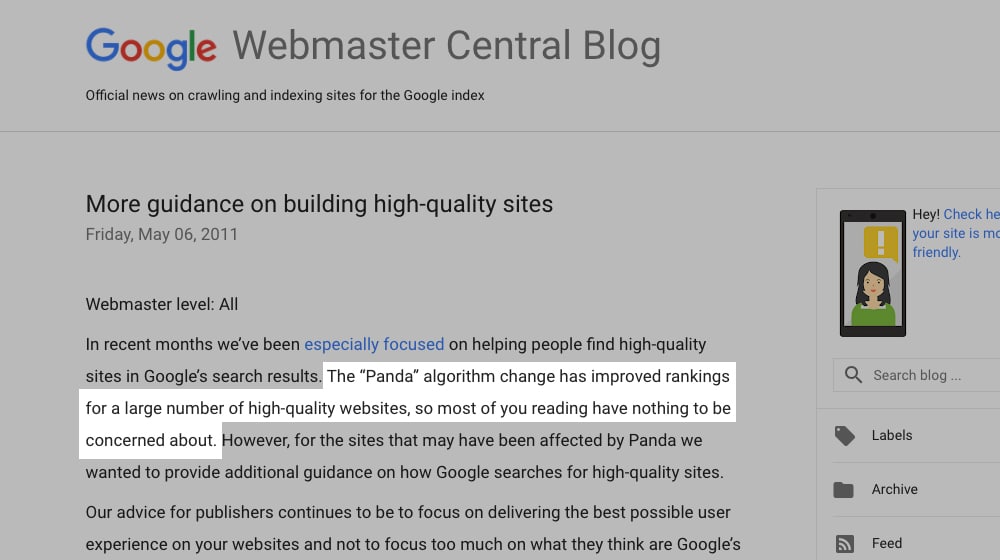
Content marketing involves knowing what Google likes in content, and building content around that. For example, knowing that Google likes original content, knowing that they generally prefer longer content, and so on. Creating content that plays to these desires is a skill all its own.
Content marketing or content SEO also involves knowing all about keywords. Google used to be very strict with keywords. You had to use specific keywords to match search queries, otherwise, your content wouldn't be found. You had to use those keywords often enough to rank for the keyword, but not so often that you were penalized for keyword stuffing or keyword density issues.
This is one of the problems Google solved some time in the last handful of years. These days, Google has a robust knowledge of synonyms and a very clever lexical parser that can virtually read and interpret the content of a page. As such, you can have blog posts rank #1 for keywords that aren't even on the page, just because your content covers the topic.
This causes issues occasionally, when someone is looking for a specific meaning of a specific keyword and Google serves them results for a more common but incorrect meaning. Still, that's what the quotes operator is for; putting quotations around your keyword searches for that keyword specifically, and usually gets around that issue.
Image SEO is another kind of SEO you can consider. It focuses on the Google image search function. Getting images to appear and rank highly in image search is a whole different beast, involving the use of alt text, file names, captions, and surrounding content to give context to the image. It's both harder and less often used since image search doesn't bring in as much traffic or as many conversions as standard search.

Local SEO is a specialized version of SEO that is primarily concerned with location-based searches and search results. A small business that only serves half of a city doesn't care if someone three states away find their content; they only want people local to them to find it. Local SEO concerns itself with more than just organic search results, too; it cares about things like local knowledge graph results and map results. Local SEO involves focusing on website elements like name/address/phone contact blocks, map embeds, and city/county/region name keywords.
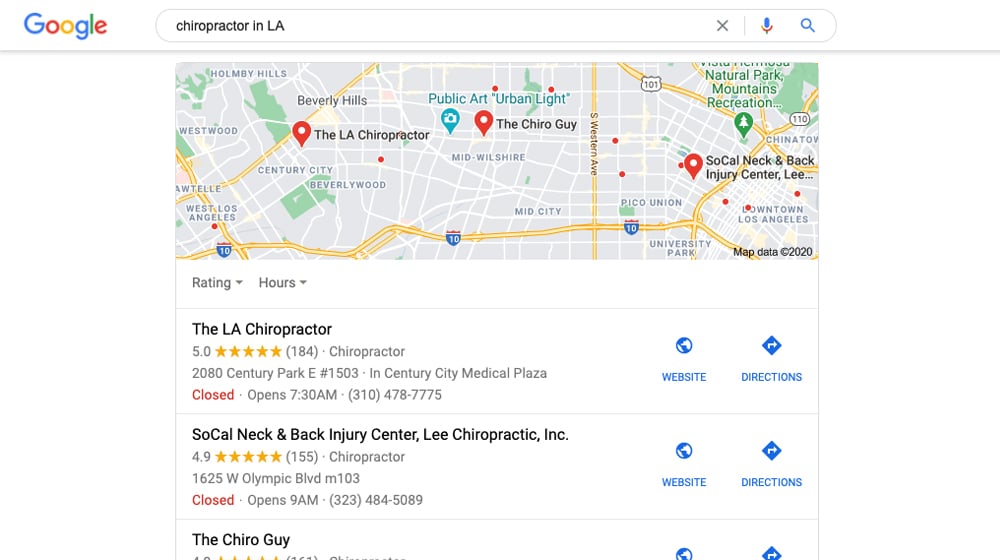
Ecommerce SEO is, as you might expect, SEO for eCommerce sites. It's SEO for product descriptions and has some overlap with technical SEO in that it's one of the primary uses for rich data markup. Properly showcasing a product, making a product description adequate for keywords and usability; it's all part of store SEO.
Ecommerce SEO can also include site structure and navigation elements. Category pages, product searches, display pages, dynamic pages requiring canonicalization, and visual elements to the page are all important. Moreover, not only does eCommerce SEO consider the usual Google search channels, but it also has to concern itself with Google Shopping search results.
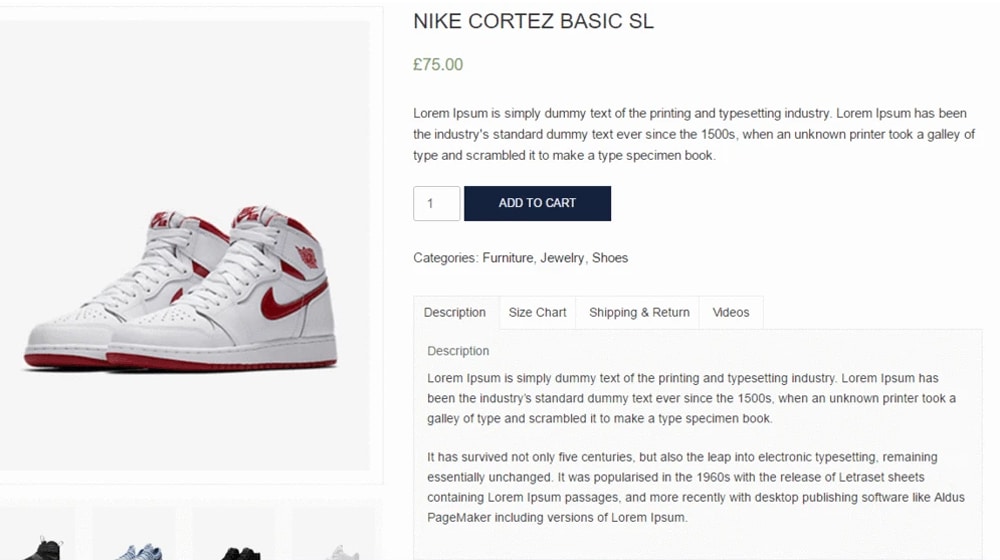
It's worth mentioning that different people have different definitions for some parts of SEO, and it is always variable what falls under which kind of SEO. For example, some people consider on-page SEO and content marketing to be the same thing. They divide SEO into three categories. On-page SEO is content, off-page SEO is link building and promotion, and technical SEO is everything else.
You may also have heard of negative SEO. Negative SEO is SEO a person can take that actively harms another site. For example, back backlinks can hurt a site, so if you purchase thousands of spammy backlinks pointed at a competitor, it's potentially possible to tank their search ranking and let your own rankings flourish. The chances of this being successful are very low, though, as part of Google's algorithm can discern the difference between intentional attempts to manipulate rankings and obvious attacks.
Google is on record as saying that negative SEO does not exist. Many webmasters disagree and can cite examples of when it happened. There have not been any overall major studies about it, but I've seen it happen before, and even had it happen to one of my sites. The fact is, negative SEO attempts often actually benefit the site temporarily, and are easily disavowed if it hurts the site, so they're largely ineffective unless they're completely ignored.
Colored Hat SEO
Another kind of SEO term you might see tossed around is "hat" SEO. Specifically, colored hats; White, Gray, and Black. This isn't actually categories of SEO, but rather a kind of morality system for SEO.

The "hats" and their colors are terms that come from hacker culture, but before that came from things like Spy Vs. Spy, and even before that came from Westerns. In old westerns, a visual shorthand to tell who was the "good guy" and who was the "bad guy" was the color of their hat. White hats were good, black hats were bad. In SEO, it's the same thing.
- White Hat SEO is SEO practices that follow the rules, work within Google's framework to boost a site, and generally play nice.
- Black Hat SEO, by contrast, is SEO that doesn't care about Google's rules, just how it actually works.
See, there are a lot of functions within Google's algorithm that you can abuse in certain ways. Those ways might get your site to rank better, faster than your competitors, but they are technically against Google's terms of use and webmaster policies. If you violate them, your site can be penalized, or removed from the index entirely.
Gray Hat SEO is a sort of midpoint between them. It uses techniques that, while not against the letter of the law, are against the spirit of it. Google could change its policies at any time to make a gray hat technique either white or black, but they usually don't. It exists in a kind of limbo until some major driving factor causes Google to make a change, usually widespread abuse of a technique.
What Kind of SEO is Most Important?
Given the immense and sprawling nature of SEO in general, it's no wonder that many webmasters look for shortcuts. There's just so much going on in SEO at all times. Where should you focus your efforts? Should you learn technical SEO? Should you focus on content? Should you worry about negative SEO?
The hard answer is: everything is important, which as it turns out, is usually your content. In fact, most all SEO experts list it as the #1 most important search factor.
You can't ignore entire categories of SEO and expect your site to rank well, either. The harder answer is: you need to focus on what needs the most attention. You won't see very much benefit from tweaking your meta titles to get just the right mix of keywords if your site speed rankings are abysmal. You won't benefit from building some backlinks if your site's JavaScript is broken.
Fortunately, there are resources available to help with this problem. Companies like SEOptimizer offer automated audits of pretty much every aspect of overall SEO, flagging problems, and letting you know where your initial efforts should be focused. Experts like Neil Patel give their own tips and guides to help you with a more DIY approach as well. And, of course, you can always hire an SEO company to do a hands-on audit (and sell you their services fixing the problems they find, of course).
It's important to recognize that while there are a lot of different subdivisions and sub-fields of SEO, it's all part of Search Engine Optimization. You have to pay attention to all of it.



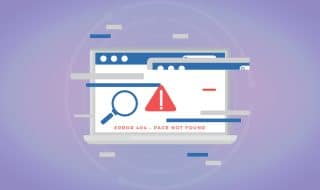

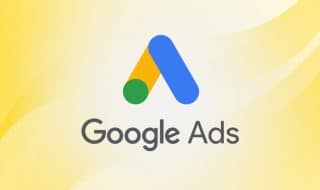
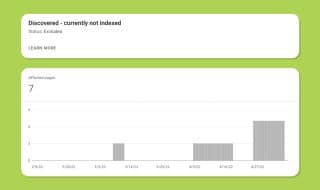

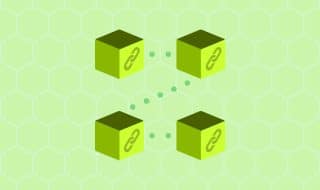

October 25, 2020
I really appreciate this article. I’m lost with SEO and it seems there are many subsets of SEO. I’m not super informed on this subject so I might need help with this, do you think its best to use SEOptimizer or just get someone to do this for me? Do you have a ballpark number for the monthly expenses if I chose any of the two?
October 26, 2020
Hi Jessie!
The most important part of a strong site is that it's: A.) Optimized properly, and B.) Has a strong content strategy. These two can be put into the "onsite SEO" and "content marketing" categories of SEO, respectively.
Usually onsite SEO for your primary pages is a one-time thing to make sure your pages are set up right, and isn't usually a monthly expense.
Content marketing is almost always an on-going expense to create new valuable pages for your site every month.
I would start by looking into these two. Onsite SEO audits are generally less than $1,000, or around that, depending on if you hire a freelancer or an agency. Content is anywhere from a few hundred per month to thousands per month, depending on if you're doing a lot of the work yourself and hiring freelancers, or if you decide to hire an expert to help you.
I hope this helps 🙂
May 25, 2021
This article was a big help for me. I honestly didn't know that there were so many different types of SEO. Goes to show that I need to do a lot more research. I did know about local SEO and image SEO, but the Colored Hat SEO was news to me!
May 26, 2021
Thanks Sander! Glad it helped you.
June 30, 2021
Thanks you answered my question.
June 30, 2021
Hey David - you're welcome 🙂
November 27, 2022
Good Day.
Thank you for providing this helpful post, please keep on doing this.
November 28, 2022
Thanks Miriam, I plan on it! 😀
November 28, 2022
Thanks Miriam, I plan on it! 🙂
April 10, 2023
I would like to express my gratitude for sharing this helpful post.
April 13, 2023
You're welcome!